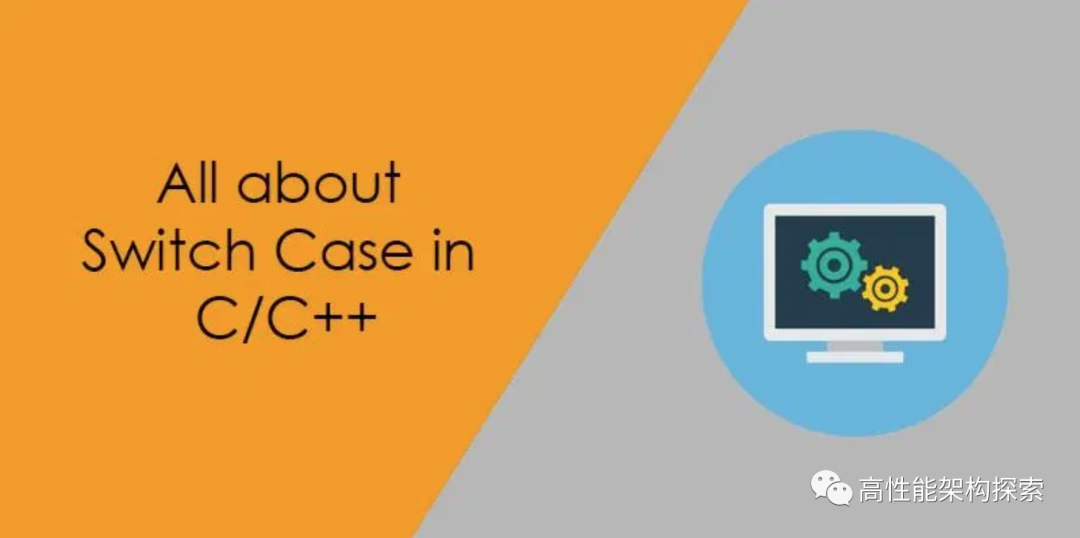一个switch case引起的线上故障

故障过程
1、上午的时候,QA同学突然说,测试自动化的流程突然过不去了,问我是不是最近对线上做了某些修改。当时第一反应是不可能
2、通过QA同学提供的test case,在测试环境通过curl发送请求,发现果然广告返回值跟预期不符。
3、通过git log对比,发现近期只有一个switch语句有修改。
4、尝试在代码中加入log语句,发现日志输出果然跟QA的错误结果一致,至此原因找到。
故障原因
下面是错误代码
switch (dsp_res->bid_type()) {
case 0:
{
auto info = dsp_response->add_dsp_res_infos();
info->set_dsp_id(item.dsp_id());
if (dsp_res->has_cache_duration()) {
info->set_duration(dsp_res->cache_duration());
}
if (dsp_res->has_quality()) {
info->set_ratio(dsp_res->quality());
}
// do sth
}
case 1:
break;
case 2:
{
auto info = dsp_response->add_dsp_res_infos();
if (dsp_res->has_cache_duration()) {
info->set_duration(dsp_res->cache_duration());
}
if (dsp_res->has_quality()) {
info->set_ratio(dsp_res->quality());
}
info->set_dsp_id(item.dsp_id());
std::unordered_set<std::string> adids;
for (auto elem : dsp_res->ad_ids()) {
adids.insert(elem);
}
// do sth
}
case 3: // 此case为新增
{
auto info = dsp_response->add_dsp_res_infos();
info->set_dsp_id(item.dsp_id());
if (dsp_res->has_cache_duration()) {
info->set_duration(dsp_res->cache_duration());
}
if (dsp_res->has_quality()) {
info->set_ratio(dsp_res->quality());
}
// do sth
}
default:
break;
}
发现,当dsp_res->bid_type() == 2的时候,也会执行 case 3的部分,然后尝试在上面各个"do sth" 后面,加上break,结果符合预期,bug搞定。
深思
为什么在未增加新case之前,test case能通过呢?仔细找QA问了下case的逻辑,原来,case每次都会返回bid_type = 2。此处,我们再贴一次之前的代码:
switch (dsp_res->bid_type()) {
case 0:
{
auto info = dsp_response->add_dsp_res_infos();
info->set_dsp_id(item.dsp_id());
if (dsp_res->has_cache_duration()) {
info->set_duration(dsp_res->cache_duration());
}
if (dsp_res->has_quality()) {
info->set_ratio(dsp_res->quality());
}
// do sth
}
case 1:
break;
case 2:
{
auto info = dsp_response->add_dsp_res_infos();
if (dsp_res->has_cache_duration()) {
info->set_duration(dsp_res->cache_duration());
}
if (dsp_res->has_quality()) {
info->set_ratio(dsp_res->quality());
}
info->set_dsp_id(item.dsp_id());
std::unordered_set<std::string> adids;
for (auto elem : dsp_res->ad_ids()) {
adids.insert(elem);
}
// do sth
}
default:
break;
}
由于switch每次都会进入case 2的子逻辑,该逻辑后面就是default,然后break,没问题。但是增加了新case 3之后,因为case 2 和 case 3后面都没有break,导致会把case 2 和 case 3的代码都执行了,直到退出循环或者遇到break。此处列下switch case的三个规则:switch...case的三个规则:
既无成功匹配,又无default子句,那么swtich语句块什么也不做; 无成功匹配,但有default,那么swtich语句块做default语句块的事; 有成功匹配,没有break,那么成功匹配后,一直执行,直到遇到break。
扩展
语句体中不包含break
#include
int main()
{
int iChoice = 0;
printf("Enter your choice = ");
scanf( "%d",&iChoice);
switch (iChoice)
{
case 1:
printf("case 1 !\n");
case 2:
printf("case 2 !\n");
case 3:
printf("case 3 !\n");
default:
printf("default !\n" );
}
return 0;
}
当输入choice 为 1的时候
 当输入choice 为 2的时候
当输入choice 为 2的时候
原因:
在上面的示例中,如果iChoice等于1,则执行主体的所有语句,因为在开关主体中没有出现break语句。如果ichoice等于2,则由于没有break语句,因此控制跳至情况2并执行以下所有情况。
一个执行语句被多个case命中
void TestFunction(void)
{
printf("Demo code\n");
}
int main()
{
int iChoice = 0;
printf("Enter your choice = ");
scanf( "%d", &iChoice);
switch ( iChoice )
{
case 1:
case 2:
case 3:
//Calling function
TestFunction();
break;
case 4:
printf("Wow Test paas !");
break;
default:
printf("default !\n" );
}
return 0;
}
输出为 原因:
原因:
对于case 1 2 3,都会执行到TestFunction
存在一样的case标签
#include
int main()
{
int iChoice = 0;
int i = 0;
printf("Enter your choice = ");
scanf( "%d", &iChoice);
switch ( iChoice )
{
case 1:
i++;
break;
case 3:
i = i + 2;
break;
case 3:
i = i + 3;
break;
default:
printf("default !\n" );
break;
}
printf("Value of i = %d",i);
return 0;
}
输出 原因
原因
case标签不能重复,否则编译器不能确定进入哪个标签
case值为浮点数
#include
int main()
{
int iChoice = 0;
int i = 0;
printf("Enter your choice = ");
scanf( "%d", &iChoice);
switch (iChoice)
{
case 1:
i++;
break;
case 2.5:
i = i + 2;
break;
case 3:
i = i + 3;
break;
default:
printf("default !\n" );
}
printf("Value of i = %d",i);
return 0;
}
输出: 原因:
原因:
switch 中的参数必须可以转换成一个整数
将default 语句放在正文的其他地方
#include
int main()
{
int iChoice = 0;
printf("Enter your choice = ");
scanf( "%d", &iChoice);
switch (iChoice)
{
default:
printf("Bad Input !\n");
break;
case 1:
printf("Your enter choice is 1\n");
break;
case 2:
printf("Your enter choice is 2\n");
break;
case 3:
printf("Your enter choice is 3\n");
break;
}
return 0;
}
输出:
case标签值必须为常量
#include
int main()
{
int iChoice = 0;
int Label = 1;
printf("Enter your choice = ");
scanf( "%d", &iChoice);
switch (iChoice)
{
case Label:
printf("Your enter choice is 1\n");
break;
case 2:
printf("Your enter choice is 2\n");
break;
case 3:
printf("Your enter choice is 3\n");
break;
default:
printf("Bad Input !\n");
break;
}
return 0;
}
输出:
嵌套开关
#include
void nestedSwitchDemo(int input1, int input2)
{
switch (input1)
{
case 1:
printf("Your enter choice is 1\n");
switch (input2 )
{
case 1:
printf("Enter Sub choice is 1\n");
break;
case 2:
printf("Enter Sub choice is 2\n");
break;
}
break;
case 2:
printf("Your enter choice is 2\n");
break;
case 3:
printf("Your enter choice is 3\n");
break;
default:
printf("Bad Input !\n");
break;
}
}
int main()
{
int iChoice = 1;
int iSubChoice = 1;
//Calling function
nestedSwitchDemo(iChoice,iSubChoice);
return 0;
}
输出:
心得
平时编码中,一定要注意编码规范,每个case都写好对应的break,不要学习这种骚操作,稍不注意就可能出现线上故障。
END
